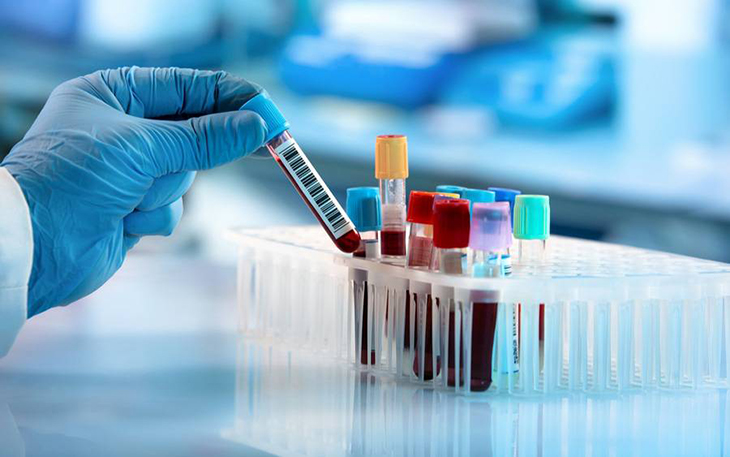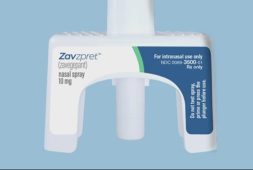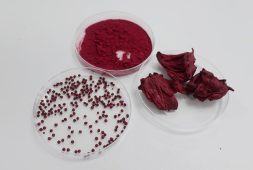
Abbott Laboratories has introduced a groundbreaking blood test that can assist in determining the need for a CT scan in patients who have suffered head injuries. By measuring specific biomarkers in the body, this blood test offers a valuable tool in assessing traumatic brain injury (TBI), commonly referred to as concussions, as the experts from FDA recently spoke in a press release.
In a recent press release, Abbott announced that the U.S. Food and Drug Administration (FDA) has granted clearance for their blood test, making it the first laboratory blood test available commercially for TBI. This milestone achievement provides healthcare providers with an objective and efficient method to evaluate individuals with mild TBIs.
Concussions typically arise from forceful blows or jolts to the head or body. The incidence of TBI has become a significant public health concern, with an estimated 1.6 to 3.8 million sports and recreation-related concussions occurring annually in the United States, as reported by the Brain Injury Research Institute. Additionally, the Centers for Disease Control and Prevention (CDC) documented approximately 223,135 TBI-related hospitalizations in 2019, along with 64,362 TBI-related deaths in 2020.
Although the majority of individuals recover from concussions, symptoms can persist for days, weeks, or even longer. In some cases, complications such as brain swelling or bleeding can occur, posing serious risks and potentially leading to fatal outcomes.
How Blood Test Works
Abbott has developed a blood test that measures two biomarkers associated with brain injury when found at elevated levels in the blood. By obtaining a negative result from this test, the necessity for a computerized tomography (CT) scan can be ruled out. CT scans are typically ordered to determine the severity of an injury and whether it has caused bleeding or swelling in the brain.
“This clearance paves the way for a future where people are routinely screened for possible concussions in the ER after things like car accidents, a slip or fall or sports injury,” said Beth McQuiston, MD. She is a medical director in Abbott’s diagnostics business. “It also gives doctors an objective tool to quickly assess these possible brain injuries, triage patients and avoid unnecessary CT scans.”
The test involves drawing blood from the arm, and results are available in as little as 18 minutes. According to Abbott, the test boasts a sensitivity of 96.7 percent and a negative predictive value of 99.4 percent. The negative predictive value represents the likelihood that an individual with a negative test result truly does not possess the biomarker associated with brain injury.
Abbott claims that their blood test has the potential to decrease the number of unnecessary CT scans by up to 40 percent, based on an unpublished clinical study cited in their press release. This reduction could result in shorter wait times for patients in hospitals and potentially lead to cost savings for both the healthcare system and the patients.
Why Prompt Concussion Diagnosis is Crucial
The process of diagnosing a concussion typically consists of multiple steps, including questioning the patient about the event, injury, and symptoms, along with conducting a physical examination. Additional procedures such as brain imaging tests may be performed, and the patient may be monitored at home or overnight at a hospital to assess the progression of symptoms.
Diagnosis can occur immediately in an emergency room following a fall, accident, or sports-related incident. Alternatively, it can happen later when an individual seeks medical attention due to symptoms that developed after the initial impact. It is crucial to diagnose a concussion as quickly as possible for optimal outcomes.
“Prompt diagnosis assists the clinician in ruling out any possible life-threatening injuries, such as a cerebral bleed, and allows for early introduction of individualized treatment recommendations,” says Elizabeth Pieroth, PsyD, MPH, a board-certified clinical neuropsychologist and director of the Concussion Program at Midwest Orthopaedics at Rush in Chicago.
What Impact Might the Blood Test Have on Concussion Diagnosis?
Shae Datta, MD, a neurologist and co-director of NYU Langone’s Concussion Center, believes that the FDA clearance opens doors for further research and improvement in the experiences of the people suffering from concussions.
“I think any new tool that gives us insight into the diagnosis once a concussion happens is very important,” she said.
Other experts also said that it’s important know that there are limitations to the test.
Munro Cullum, PhD, a neuropsychologist from UT Southwestern’s O’Donnell Brain Institute in Dallas, said that the search for concussion biomarkers is “a hot topic and certainly worthy of continued research,” but believes that further studies should be made to see the impact on care.
“The main utility of a blood test is to help identify which individuals may or may not need a CT scan to detect brain bleeding following traumatic brain injury,” said Dr. Cullum. He conducts brain research on college athletes and current or former NFL players. “Since the vast majority of concussions do not result in brain bleeds and CT is usually not indicated following concussion, such a tool would have utility in certain situations, but we need more research to determine whether blood-based biomarkers will be useful in a more broad sense or help predict clinical outcomes.”
Pieroth agreed to this and said, “there is no doubt that it is helpful to have a fast, reliable method to determine if there is evidence of a cerebral bleed. However, this blood test does not rule in or rule out a concussion. Ultimately, the diagnosis of concussion relies on a good clinical exam and assessment of the patient’s symptoms.”



